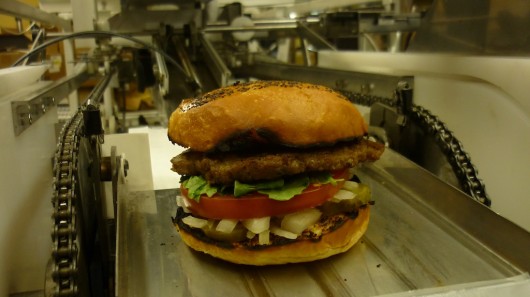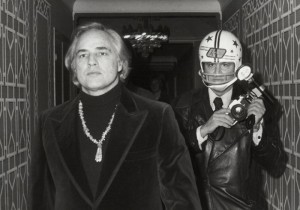
The dominant idea in space colonization today is that we’ll fill up the moon or Mars in a large-scale settlement of 4D cities, try to make it approximate another Earth, with all the comforts of home. But while something with such familiarity may appeal to the masses, Freeman Dyson has long dreamed of exploration on the margins, of something stranger, more diffuse and, perhaps, more dangerous: He wants pioneers to grow vegetables on asteroids.
In a 1978 interview with Omni’s Monte Davis about artificial biodomes and smart clouds, the physicist stood in contrast to his fellow Princeton professor Gerard K. O’Neill, who envisioned massive, standardized space habitats. Regardless of which schemes are superior, Dyson presciently realized at the time that the future of space settlements might be powered by private interests, and in 2014 those entrepreneurs favor O’Neill’s view over his. An excerpt:
“Freeman Dyson:
I’ve done some historical research on the costs of the Mayflower’s voyage, and on the Mormon’s emigration to Utah, and I think it’s possible to go into space on a much smaller scale. A cost on the order of $40,000 per person would be the target to shoot for; in terms of real wages that would make it comparable to the colonization of America. Unless it’s brought down to that level, it not really interesting to me, because otherwise it would be a luxury that only governments could afford.
Omni:
Where would your Mayflower-style colonists go?
Freeman Dyson:
I’d put my money on the asteroids. Dandridge Cole and others suggested using a solar mirror to melt and hollow out an iron asteroid, and in O’Neill’s book his homesteaders build their own shells from the minerals available out there. I wouldn’t accept either of those as the most sensible course: I think you should find an asteroid which is not iron or nickel, but some kind of soil you could grow things in.
Omni:
What do you mean by soil?
Freeman Dyson:
Well, we have specimens of meteoritic mineral called carbonaceous chondrite, which looks like soil–it’s black, crumbly stuff containing a good deal of water; it has enough carbon, nitrogen, oxygen so that there’s some hope you could grow vegetables in it, and it’s soft enough to dig without using dynamite.
Omni:
So you think it would be worth looking for an asteroid like that rather than trying to transform a raw stone or metal asteroid?
Freeman Dyson:
Yes, if it’s to be done on a pioneer basis, you’d jolly well better find a place where you can grow things right away. Otherwise it’s inevitably a much slower and more expensive job.
Omni:
Is the sunlight at a distance adequate to grow plants?
Freeman Dyson:
I think so. Plants are very flexible in their requirements, you know, and they could be genetically altered if it’s needed. After all, a lot of things grow very well even in England…
Omni:
What about colonizing the moon? Too much gravity?
Freeman Dyson:
That…and it’s simply too close to home. Too easy for the tax man to find you. And choosing a place to go is not just a question of freight charges. There have always been minorities who valued their differences and their independence enough to make very great sacrifices, and it seems obvious to me that it’s going to happen again.
Omni:
So you think we may not go in for the big O’Neill-type colonies after all?
Freeman Dyson:
We may not, but others may. I was in Russia two years ago for a conference on telescopes, and all that anyone there wanted to hear about was O’Neill’s ideas. They knew that he and I were both at Princeton, and assumed I could tell them everything about space colonies. The point is that in Russia, they have very little of our current mistrust of technology on the grand scale–in fact, it fits very well with their ideas about our relationship to nature. Thousands of engineers working on a giant framework floating in space, that’s a picture that excited them very much. I wouldn’t be surprised if they choose that.
If they do, the historical analogy becomes very strong: the Russians play the role of Spanish colonies in the New World, and people like me are more like the English, with smaller, scattered, decentralized colonies. Of course, it took the English much longer to get going, but when we did go we did a better job.”




































